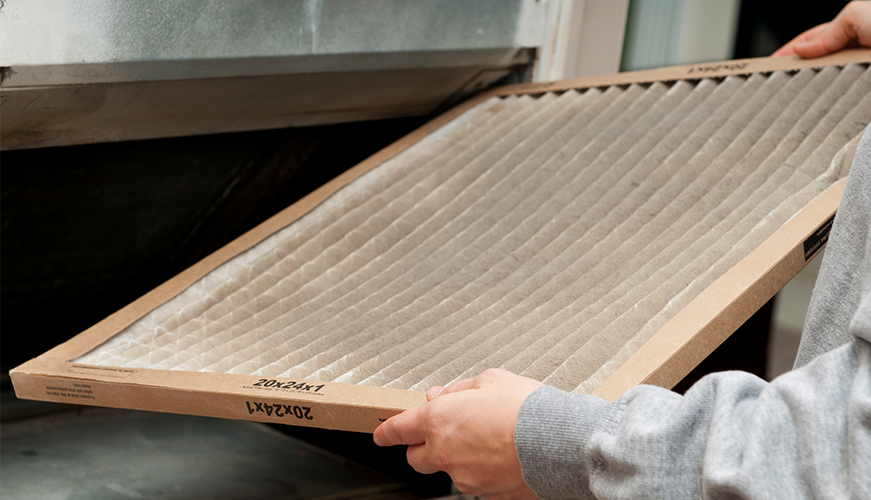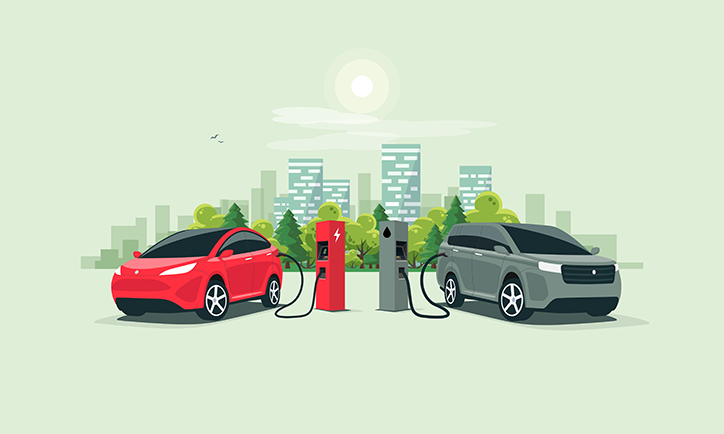Your home’s HVAC system is responsible for, on average, 27% of your electricity bill. These systems keep your house at a comfortable temperature, but most people are only willing to sacrifice a few degrees in either direction to save energy and money. Luckily, there are a few changes you can make in order to save a significant amount of money and improve your home in other ways.
One of the most important ways to make your HVAC system more efficient is by paying attention to the filter. This can mean simply keeping up with the recommended maintenance, or it can mean changing the type of filter you use to better suit your lifestyle.
Types of Filters
Fiberglass
Most HVAC systems come with standard fiberglass filters that need to be replaced about once a month. They protect your HVAC system by filtering large airborne particles that cause corrosion, which can cost you more money than consistently replacing the filter. These filters don’t catch small particles like dander, pollen, and other things that can negatively affect your health.
Pleated Filters
There are pleated filters that most commonly come with one or four inch pleats. The pleats increase the surface area of the filter and allow it to pull a higher percentage of large particles out of the air. While the one-inch pleated filters clog easily, the four-inch pleated filters can last up to three months.
Pads
You can buy permanent filter frames and pads that you have to replace every other month. In the same vein as fiberglass and pleated pads, these don’t handle small particles well. On the other hand, the replaceable pads are cheap, easy to change, and some even have a sticky side that helps trap particles.
Permanent Filters
All of the above filters should be inspected monthly to determine if they need to be replaced. Depending on the air quality of where you live, you may need to replace them once a month. There are a few options for permanent filters that you clean on a regular basis as opposed to replacing. These cost more upfront, but also result in long-term savings.
The basic permanent washable filter requires monthly cleanings and is only effective with large particles like dust and soot. These won’t protect your home from dangerous airborne particles like dander, pollen, and smoke. They are environmentally friendly, because instead of throwing out a filter every month and buying a new one, all you have to do is clean the permanent one off with water, let it dry, and put it back in.
The Electro-Static Filter is composed of 8-10 layers and, like the name suggests, uses static-electricity to attract particles to it. This static electricity has trouble pulling the larger particles in because the charge is relatively weak, which means that these filters function more as air purifiers to protect the integrity of your system. Because it filters smaller particles and is relatively thick, the HVAC has to work harder to pull air through the 8-10 layers and therefore uses more energy.
Why you should keep your filter clean
Whichever of these filters works best for your lifestyle and environmental commitment, it will require regular maintenance in order to function at peak performance. Dirty filters can cause a lot of problems, some of which go unnoticed while others can leave you without a functioning HVAC system.
When a filter gets dirty, your HVAC system has to work harder to pull air through it and into your home. This will result in higher energy consumption and higher bills. It can also result in the fan motor burning out or the heat exchanger cracking, both of which will leave you without heat or air conditioning until you can fix the problem.
If the dirt is thick on the filter, it can make its way into your ventilation and HVAC system. This will make it harder to regulate the temperature in your home since your system will not be able to read the temperature as well as if it were clean. You will therefore spend unnecessary energy regulating the temperature when it doesn’t need to be regulated. You’ll also have to have your ducts cleaned more frequently since dirt is being sucked into your system from the filter. This dirt can breed bacteria, mold, and fungi, which lead to very bad air quality in your home.
To avoid dirty filters, make sure your AC fan is set to “auto” instead of “on” so it’s only cycling air when it needs to be as opposed to constantly. Fixing leaky ducts will also prevent air from bypassing the filter and making your system dirtier. Keep in mind that having pets that shed will lead to dirtier filters and ventilation systems. Luckily, you don’t have to get rid of your pets to keep your HVAC functioning and clean.
How to tell if you need to replace/clean your filter
There are a couple easy ways to check if you need to replace or clean your filter. If you take the cover off of one of your vents and there is dirt or debris in the vent, or if dust has accumulated on the air returns, your filter most likely needs to be changed.
Also, if you look inside of your system and see that the blower fan, motor, or air conditioning coil is dirty, you most likely need to replace or clean your filter.
Air purification
As you can see, a lot of these air filters don’t keep the air in your home clean. If you want to keep the small particles (like smoke and pollen) out of your home, consider buying an air purifier. The best you can buy are called High Energy Particle Air Purifiers. These must be installed in your ductwork and require a lot of energy to run. They should only be used in extreme circumstances and when you have extra funds available to install and run them.
Smaller standalone purifiers that you can plug into outlets in your home are proven to be effective as well. They filter the air of small particles but, in doing so, create a chemical reaction that produces Ozone. While Ozone is great to have in the atmosphere, it can be very irritating to people with pre-existing breathing difficulties.
There is no one-size-fits-all filter, but they all function relatively similarly. Your decision should be based on environmental consciousness, maintenance habits, and your financial goals.



